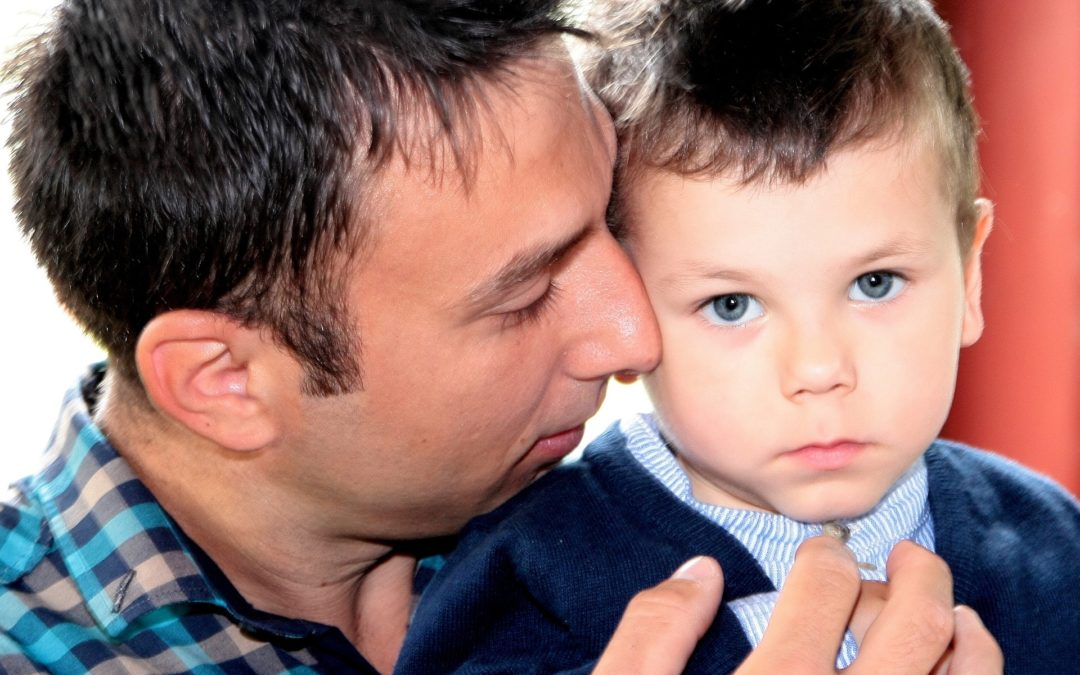No matter what steps you take as a parent, the news of your divorce will be shocking and upsetting for your children. They may feel angry, afraid and blind-sided. Their grades may suffer, their behavior may worsen and their emotions may fluctuate.
Don’t panic. Children are resilient. They have the potential to adjust to major changes in their lives. Research shows that divorce doesn’t have to cause long-term damage to children. However, this depends heavily on how the divorce is handled by the parents.
So what is divorce like for children?
Preschool age children:
Very young children, age 0 – 5, will have difficulty understanding what a divorce means and why it’s happening. However, they are often attuned to the stress that radiates from their parents. Even babies are sensitive to their parent’s emotions, perhaps becoming more irritable and needy during emotional turmoil. They will pick up as well as mirror the moods of their parents. If you and your ex-spouse are fighting or arguing, young children will absorb that negativity.
What you can do:
- Keep your preschooler’s schedule and routines the same as they were before the divorce. Familiarity and consistency will help children feel safe and comfortable.
- Keep your child’s favorite toy or security item handy to soothe and console when needed
- Give your child abundant love and physical attention, like hugs and cuddling to reassure and comfort
- Encourage your children to share their feelings. If your children have difficulty expressing emotions, ask them to draw a picture of how they are feeling.
- If you are having difficulty explaining the divorce to your child, there are children’s book available that will help the two of you talk about the subject (e.g., My Family’s Changing, I Have Two Homes, and I Don’t Want to Talk About It)
- Seek extra support from friends and family
- Keep a calm and positive demeanour with your ex-spouse; your co-parenting skills will directly affect your child’s development, so work together for your child’s sake
Elementary school age children:
Children age 6 – 11 are old enough to realize that a divorce will forever change their family. This may terrify children and affect them in negative ways. Children this age may blame themselves or they may blame one of the parents. They might act out aggressively or withdraw into an anti-social state and be especially anxious about “losing” their non-custodial parent.
What you can do:
- Be prepared to communicate and explain what the divorce means and how it will affect your family. Keep in mind that young children tend to worry about the details that most affect their lives (e.g., Where will I live? Will I still go to the same school?).
- Answer their questions honestly and encourage them to express their true feelings; however, remember that you do not need to share all of the details of your divorce with your children
- Avoid blaming the other parent to keep a healthy relationship between all of you
- Communicate that the divorce is a mutual decision between you and your ex, and no one is to blame, especially not the child
- Encourage your child to stay engaged in hobbies and activities because at this age peer relationships and self-esteem is essential to social development
- Set a visitation schedule and stick to it; your child needs to feel involved with and loved by both parents, during and after a divorce
Middle school and high school age children:
Adolescents age 12 – 17 may or may not suffer negatively due to a divorce, depending on their maturity level and temperament. Some adolescents may believe the divorce is for the best and simply want their parents to be happy. But even with this reaction they will still need love, support and open communication.
Parents need to take special care with adolescents who are extremely upset by divorce. This age has children in a precarious state. For an adolescent, acting out may involve drugs, alcohol, sex and other unsafe behaviors. Adolescents often rely on their peers for emotional comfort, which can be beneficial or destructive, depending on the habits of the peer group. Some adolescents may feel they are to blame and will improve their behavior as they try to “fix” the damage between their parents.
What can you do:
- Don’t overexpose your adolescent to the details of your divorce
- Don’t complain about the other parent to your adolescent
- Encourage relationships with peers who have experienced the same situation
- Both parents must work to stay involved in their adolescent’s life, otherwise they might feel abandoned
- Maintain a positive relationship with the other parent in front of your adolescent; they will feel reassured and learn from your behavior
- Pay close attention to your adolescent’s behavior and address outstanding issues like aggression, violence and social withdrawal
- If things feel out of control, reach out to a therapist for advice
Despite the divorce, your ex is still your greatest ally and supporter in raising your child. Try to put your differences aside and focus on your child’s well-being. Ensure you are not overheard fighting, arguing or having negative conversations about living situations or finances. Your child will stress about these things and feel guilty that they cannot solve the problems for you. Remember, the most important thing your child needs from you and your co-parent is love.

